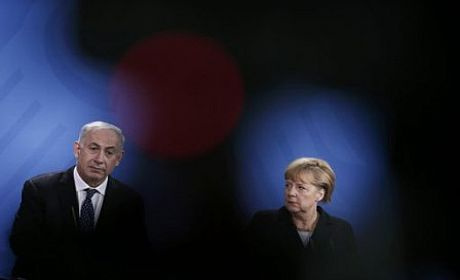West Is Not Able to Pursue Diplomatic Confrontation

Following the positive vote of the majority of UN countries for Palestine’s observer status, relations between the Zionist regime and European countries have gone through serious developments. What is the level of relations between the European countries, especially Britain and France, and the Zionist regime today?
In reality, two significant incidents have happened. The first issue was the positive vote of the European Union members, including France, Britain, Germany, and Sweden, for Palestine’s promotion in the UN as an independent observer country and the other issue was the summoning of Israel's ambassadors to the French and British Foreign Ministries.
Nevertheless, considering the importance of these two incidents, no serious fundamental changes have happened in relations between these countries and Israel. It seems that there are still problems in Israel's relations with the US and European countries. On one side, these countries do not intend to damage their relations with Tel Aviv, and on the other, based on serious growing pressure exerted by the international community and existing international commitments, they cannot approve of Israel's actions.
For example, the issue of settlements has been condemned many times in the Security Council, and despite the fact that the US has repeatedly vetoed UN Security Council resolutions regarding Israel, this is an exceptional issue which is supported by the US. Therefore, this issue, whether from a legal perspective or from the viewpoint of international prestige, is not an issue which the European Union and the US can ignore or remain silent about.
Following the promotion of Palestine's international status, Israel has taken measures to punish and react to the decision made by the international community. Among the most important measures taken by Israel is the confiscation of the Palestinians' taxes with energy debts as an excuse and the other is the widespread continuation of settlement-building for immigrant Jews loyal to the government of Israel. These two issues have created serious differences between the European Union and the Zionist regime, but as before, it seems that this trend is only a short-term protest and will not lead to any special actions.
Is it possible that a serious diplomatic confrontation might occur between the West and Tel Aviv?
No. As Con Coughlin, editor of the Daily Telegraph published in London, has reiterated, "Britain is not able to have diplomatic confrontations with Israel". On one side, western countries call themselves "honest mediators of peace", but at the same time and on the other side, they repeatedly declare that they have strategic and non-damageable relations with Israel.
In the long-run, will the issue of Palestine's declaration of existence be to the benefit of the Palestinians? How do you evaluate Israel's suicidal reactions with regard to this issue?
Despite the happiness shown by many countries for the promotion of Palestine in the UN, some countries, while disagreeing with Israel's measures against this universal approval, have stated that the Middle East peace process is faced with problems following this decision. History has shown that the Palestinians will, in the long run, take small and big steps in reaching complete independence and the reestablishment of a free government. Of course, in short and middle term, they have paid heavy prices due to Israel's vengeful and retaliatory measures.
A study of statements made by media that are Israeli lobbies and are published around the world or from inside the Israeli government and by their Foreign Ministry shows that the issue of settlement-building and blocking Palestinian assets cannot necessarily be considered as a powerful measure.
In practice, these are retaliatory measures against a new international movement in defense of the rights of the Palestinians. It must not be forgotten that these issues have happened in the wake of elections in Israel which will be held in two months. Some measures taken by Israel, like many other countries, have domestic uses. Right now, the radical rightist government of Benjamin Netanyahu, like the government of Ariel Sharon, is faced with serious problems from more radical factions. They come to power with slogans of non-compromise and continued fighting with Palestine, but in practice, they neither have the power to act upon their radical campaign slogans and exert more pressure on the Palestinians, nor do the realities of international public opinion and the world community permit them to enforce such policies.
European countries such as Britain and France, and recently the European Union, have summoned Tel Aviv’s ambassadors due to illegal settlement-building. How is Israel's reputation today at the international level? Can it be said that Israel is losing its reputation even among its old friends?
Following the recent measure taken by the UN, Israel's reputation in the international scene has been damaged. For Tel Aviv, the issue of repair or improvement of its international reputation is very significant and strategic. Israel is the only government (regime) which has a Minister of Public Diplomacy and maintaining and repairing this reputation is very important for it. Of course there are countries which support Israel and its radical American and European supporters, but the majority are countries which expressed their happiness following the promotion of Palestine's status in the UN, sympathized with the people of Gaza, and opposed Israel's policies.
From this aspect, it is not strange that Israeli officials have made a mockery of such an important decision made by the international community and accused the UN General Assembly of systematic support for Palestine. Despite all of this, Israel made great efforts to prevent the adoption of the promotion of Palestine's status in the UN.
Therefore, in this conflict and in similar ones, Israel is not the winner in its attempts at propaganda. But we must wait and see how this not very significant yet effective measure can be utilized against Israel.

